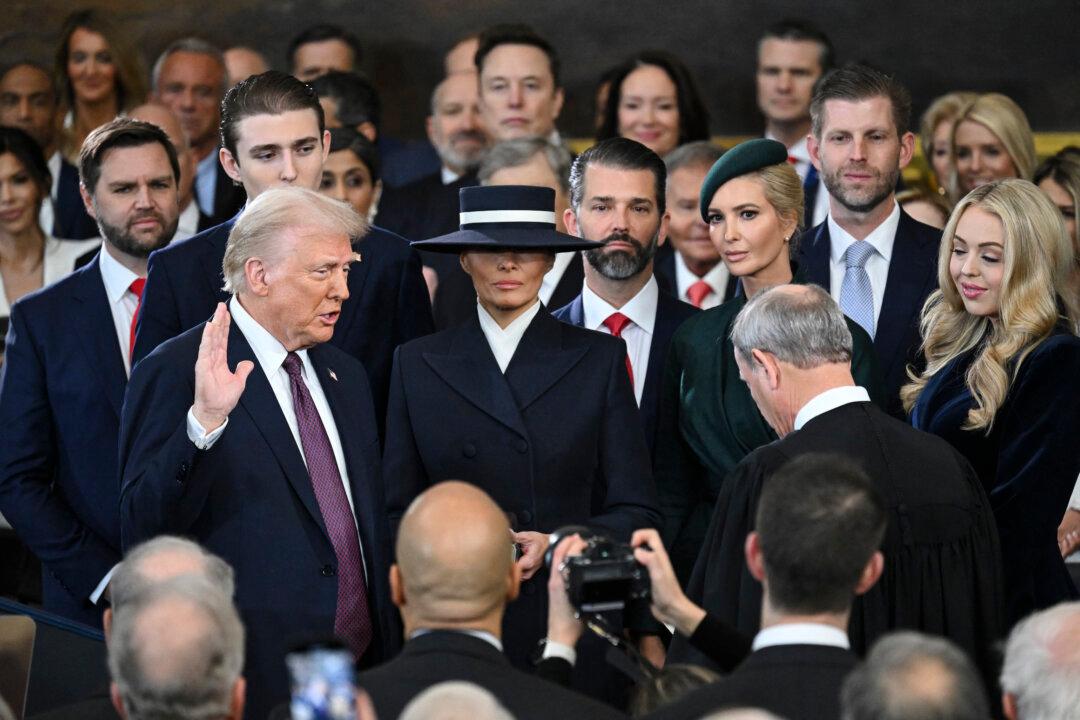WASHINGTON—Donald Trump, inaugurated as the 47th president of the United States, called for a “revolution of common sense” as he began a historic non-consecutive second term.
“I return to the presidency confident and optimistic that we are at the start of a thrilling new era of national success. A tide of change is sweeping the country,” Trump said in his inaugural address.






